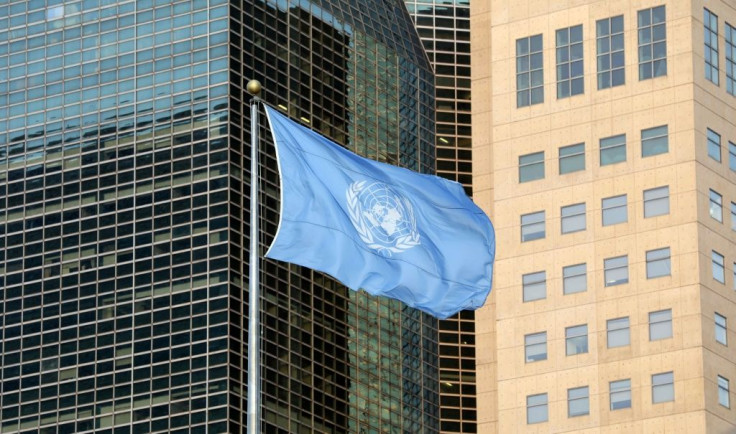$1.7 Bln Pledged In Aid To Save Sahel From 'Breaking Point'
International donors agreed Tuesday to give $1.7 billion in humanitarian aid to the central Sahel, after the United Nations said the northern African region plagued by violence and climate change was at "breaking point".
Conditions in the section of the semi-arid sub-Saharan belt spanning Burkina Faso, Mali and Niger are worsening dramatically according to the UN, with a record 13.4 million people needing assistance.
Following a virtual ministerial conference, donor countries announced scaled-up aid to the region "to help stem what could otherwise become one of the world's biggest humanitarian crises", the UN said in a statement.
Going into the conference, the UN said that as of October 7, it was $850 million short of the $1.4 billion needed for its humanitarian response plans this year.
The conference was also seeking a further $1.56 billion to protect the lives of the region's most vulnerable people next year, taking its total ask to $2.4 billion.
Denmark -- in partnership with Germany, the European Union and the UN -- hosted the conference in a bid to instil a more acute sense of urgency.
"The central Sahel region is at a breaking point," UN Secretary-General Antonio Guterres told the conference in a video message.
"The Sahel is a microcosm of cascading global risks converging in one region. It is a warning sign for us all requiring urgent attention and resolution.
"We must act -- and act now."
Guterres said security had sharply deteriorated, violence was on the rise and internal displacement had increased 20-fold in less than two years.

The number of families facing hunger has tripled, while climate change threatens livelihoods, with the Covid-19 pandemic exacerbating the problems, he added.
"We need to reverse this downward spiral with a renewed push for peace and reconciliation," Guterres said.
Twenty-two countries announced donations: 14 EU nations plus others including Japan, Canada and South Korea, along with the EU itself and the largely UK-backed Education Cannot Wait fund.
Switzerland offered $464.1 million, followed by the United States with $274.8 million, Denmark with $183 million, the EU with $122 million and Germany with $118.2 million.
"Violence has forced more than 1.5 million people in the central Sahel region from their homes -- a twentyfold increase in two years. Gender-based violence has spiked, millions of children are out of school, and basic health and social services are lacking," the UN statement said.
"Once released, the funds will help some 10 million people for the remainder of 2020 and through 2021 with nutrition and food, health services, water and sanitation, shelter, education and protection, and provide support to survivors of gender-based violence."
An estimated 7.4 million people are struggling with crisis or emergency levels of food insecurity during the current lean season, said the UN Office for the Coordination of Humanitarian Affairs (OCHA) -- treble the number of acutely food insecure people than one year ago.
Compared to the average of the last five years, acute food insecurity has increased by 514 percent in Burkina Faso, 130 percent in Mali and 144 percent in Niger.
OCHA said that in Mali alone, the number of people who needed humanitarian assistance between January and August 2020 rose from 4.3 million to 6.8 million, meaning one in three people needed emergency aid.
© Copyright AFP 2024. All rights reserved.



















